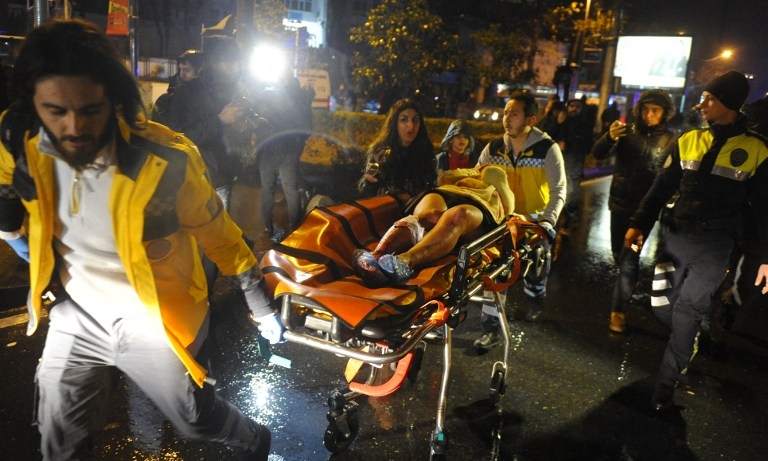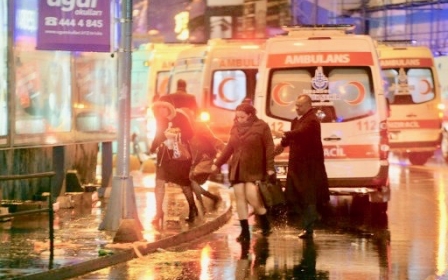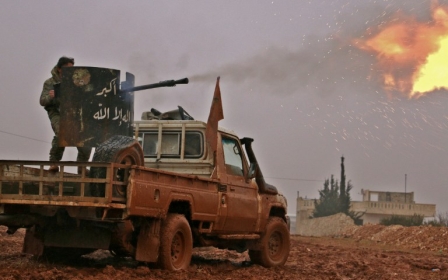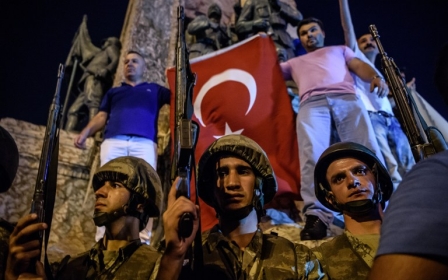Turkey shocked at New Year’s attack despite extensive security measures

ISTANBUL, Turkey – Around 90 minutes into the New Year, many Turks’ hopes for a calmer 2017 were dashed. They were left bewildered at how such an attack was carried out despite the extensive security measures in place.
A lone gunman attacked a nightclub in Istanbul, killing 39 people and wounding 70 others. Four of the injured are in critical condition. A massive manhunt to track down the killer was underway.
Among the dead are foreigners, including seven Saudis, four Iraqis, two Tunisians, two Indians, one Syrian, one Lebanese, one Palestinian citizen of Israel, one Canadian and one Belgian of Turkish descent, officials said. Of the 39 killed, 11 are Turkish citizens and 24 foreigners. The identities of four others remain unknown as of now. Of those killed, 25 were male and 14 female.
Initial reports say there were 700 to 800 revellers at the Reina nightclub on the shores of the Bosphorus when the gunman entered the premises.
Akif Hamzacebi, deputy speaker of the Turkish parliament, called it an attack on a lifestyle choice.
"This is clearly an attack on a lifestyle choice. We have to all unite against such despicable terror attacks," he said in live comments to private broadcaster NTV.
Turkish President Recep Tayyip Erdogan in a statement on Sunday said that the attack was an attempt to create chaos.
"We will not allow such games to succeed," he said.
Kemal Kilicdaroglu, chairman of the Republican People's Party (CHP), also slammed the terror attack, saying the country would not bow to such acts of terror.
Extensive security measures
Unprecedented security measures were put in place for New Year's Eve celebrations across the country, with the most extensive measures being adopted in Istanbul.
Earlier on Saturday, police had detained eight alleged Islamic State (IS) group militants believed to be planning attacks in Ankara.
Thousands of police officers, uniformed and plainclothes, were stationed in the city's Taksim area, the public square where many of the city's residents traditionally usher in the New Year and about 4km away from where the attack took place.
The police officers were deployed to both maintain security and act immediately in the event of any terror attack, as well as to prevent cases of sexual harassment.
Following the truck attack on a Berlin Christmas market last week, trucks and lorries were also banned from many parts of the city.
Yet the attack came in a different area of the city. The Reina nightclub is a top-end venue popular with Turkish football stars, celebrities and other high-flyers. It also attracts a large number of tourists.
Out of the 24 terror attacks Turkey faced in 2016, the vast majority of them were either car bombs or suicide bombers.
In the first hours of 2017, however, it was a lone gunman who forced his way into the upscale Reina nightclub and unleashed terror.
The area where the nightclub is located is home to a series of high-profile and upscale nightclubs, hence well-equipped with closed circuit TV cameras.
Initial reports pointed at an attacker wearing a Santa Claus costume to gain access and shouting in Arabic once inside.
However, Interior Minister Suleyman Soylu later said in a statement that the assailant was just wearing a coat and a cap.
The Arabic heard could also have come from the Arabic-speaking revellers inside the venue.
A reporting ban imposed after a request by the Turkish prime ministry means media outlets can only rely on official statements for information.
The prime ministry justified the temporary ban by saying it is meant to ensure the soundness of ongoing investigations.
Turkey is faced with attacks by various terror groups, including IS and the Kurdistan Workers’ Party (PKK).
Possible perpetrators?
Commentators on local media hinted that the attack bore the hallmarks of IS, which has often sought to target tourists drawn to Turkey.
The Turkish military is currently engaged in a heated battle with IS militants in the town of al-Bab in northern Syria.
The military operation to repel IS from al-Bab is part of Turkey’s Euphrates Shield operation that it is carrying out with Free Syrian Army fighters since 24 August.
Another possibility is some marginal radical elements within the country who vociferously attack New Year’s celebrations in Turkey, saying it is not Islamic and incompatible with Turkish culture.
Every year such groups attempt to distribute fliers slamming New Year’s celebrations and labelling those who participate in them as non-Muslims.
Although people known to be associated with such marginal groups have resorted to individual physical attacks against revellers, there has been no reported incident of mass terror to date.
Individual freedoms vs public security
Sunday’s attack also brought back debate regarding the balance between individual freedoms and measures required to ensure public security.
Turkey has been under a state of emergency since 21 July, after a failed coup attempt. The state of emergency also grants the government additional policing powers among others.
Aspects of these powers, such as detaining suspects without access to legal representation or raids on homes and premises without warrants, have been widely used.
However, the state of emergency measures have not resulted in a visible increase in police checkpoints or stop-and-search measures.
Critics have also pointed to the massive post-coup purge within the state’s security apparatus, including its police and intelligence forces. They say it has considerably weakened Turkey’s capability to pre-empt and react to such incidents.
New MEE newsletter: Jerusalem Dispatch
Sign up to get the latest insights and analysis on Israel-Palestine, alongside Turkey Unpacked and other MEE newsletters
Middle East Eye delivers independent and unrivalled coverage and analysis of the Middle East, North Africa and beyond. To learn more about republishing this content and the associated fees, please fill out this form. More about MEE can be found here.




